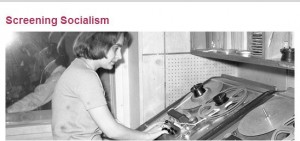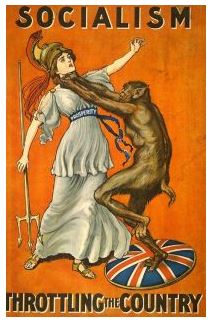 Screening Socialism is an innovative research project which explores the culture of television in socialist Eastern Europe. Funded by the Leverhulme Trust, the project spans five countries and is the first comparative, transnational study of television in Eastern Europe. Screening Socialism will draw on archival documents, narrative analysis of popular television shows, and interviews, in order to investigate the role of television in everyday life, the changing messages it disseminated to the public, the elite’s shifting relationship to the medium, as well as the part it has played in shaping public memory of the socialist period. The project will culminate in a number of journal articles, conference papers, and two monographs on television in Eastern Europe.
Screening Socialism is an innovative research project which explores the culture of television in socialist Eastern Europe. Funded by the Leverhulme Trust, the project spans five countries and is the first comparative, transnational study of television in Eastern Europe. Screening Socialism will draw on archival documents, narrative analysis of popular television shows, and interviews, in order to investigate the role of television in everyday life, the changing messages it disseminated to the public, the elite’s shifting relationship to the medium, as well as the part it has played in shaping public memory of the socialist period. The project will culminate in a number of journal articles, conference papers, and two monographs on television in Eastern Europe.
Duration: August 2013 to July 2016
The post-1989 wave of research into Cold War history threw into sharper relief aspects of the Cold War contest that had previously received little attention. One of these was the role of cultural forms and practices, ranging from religion, literature and the fine arts to film. Despite this surge of interest, our knowledge of the cultural Cold War and, in particular, our understanding of the role of popular culture and everyday life in socialist societies remains patchy. At least initially, much of the literature was focused on elite, ‘respectable’ cultural forms such as literature and theatre, while the study of media and popular culture has gathered momentum only in recent years, and has largely been restricted to the Soviet Union and, to a lesser extent, East Germany.
Screening Socialism is an attempt to redress this balance. Focusing on television and, in particular, on popular programming, the project will examine the role of television in the transformation of socialist politics after World War II, and the part it played in shifting the terrain of political contestation from the public to the private domain (a shift exemplified by the so-called ‘Kitchen Debate’ of 1959 between Nikita Khrushchev and Richard Nixon over standards of living under socialism and capitalism). Socialist regimes increasingly sought to legitimate themselves via the provision of consumer goods and the raising of living standards as socialist parties cast off the asceticism of post-war reconstruction to proclaim the importance of material goods and private apartments to the socialist way of life. Popular television was an important conduit for this privatisation of politics, a space where the social imaginary of the socialist ‘good life’ was shaped and debated. This project sets out to understand the effects of this development. Did socialist television de-politicise socialist culture and undermine public engagement in political processes, or did it succeed in bringing public affairs to a much wider audience?
To investigate these questions, the project will compare the evolution of television culture in five countries in socialist Eastern Europe. The research will examine archival documents and primary source literature, and use quantitative and qualitative analysis of popular television series that will illustrate the key similarities and differences in (a) the cultural narratives promoted by popular television series, (b) changing elite attitudes towards popular entertainment, and (c) key trends in audience reception.
The project also seeks to understand the afterlife of socialist television in popular memory. Following the fall of state socialism in Eastern Europe there has been an upsurge in scholarly interest on memories of socialism. However, this body of literature has yet to do full justice to the various dimensions of memory work in post-socialist Eastern Europe, especially with regard to the vernacular and everyday aspects of remembering. While some studies of micro-processes of memory formation have been written, the focus tends to be on vernacular memories of political events and public processes, while the more mundane memories of private, everyday life, such as family, generational relations, leisure and consumption, receive far less attention. To address this gap in the scholarship, over the course of the project 225 individuals will be interviewed about their memories of television as a way of asking how individuals remember their past lives as parents, children, teenagers, husbands, wives, neighbours, consumers, employees, rather than as participants in, or witnesses of, political events or public processes. The aim here is both (a) to better understand the dynamics of post-socialist memory formation, its relationship to the media, and differences between different demographic groups, and (b) to gain an insight into historical audience reception patterns.












